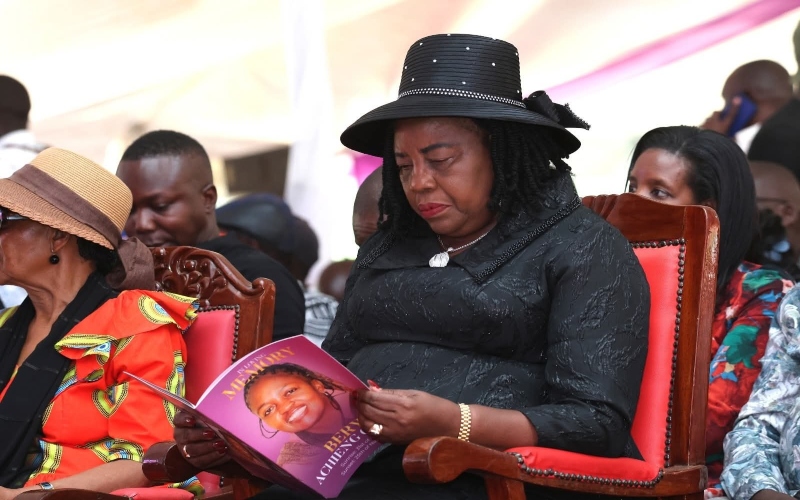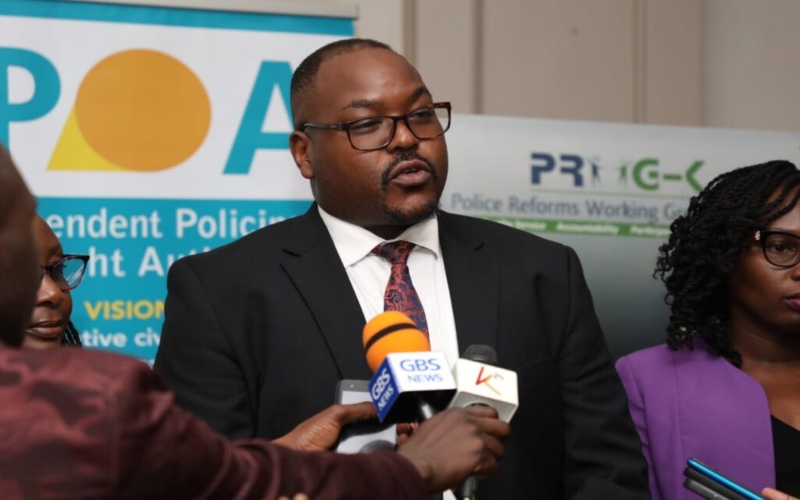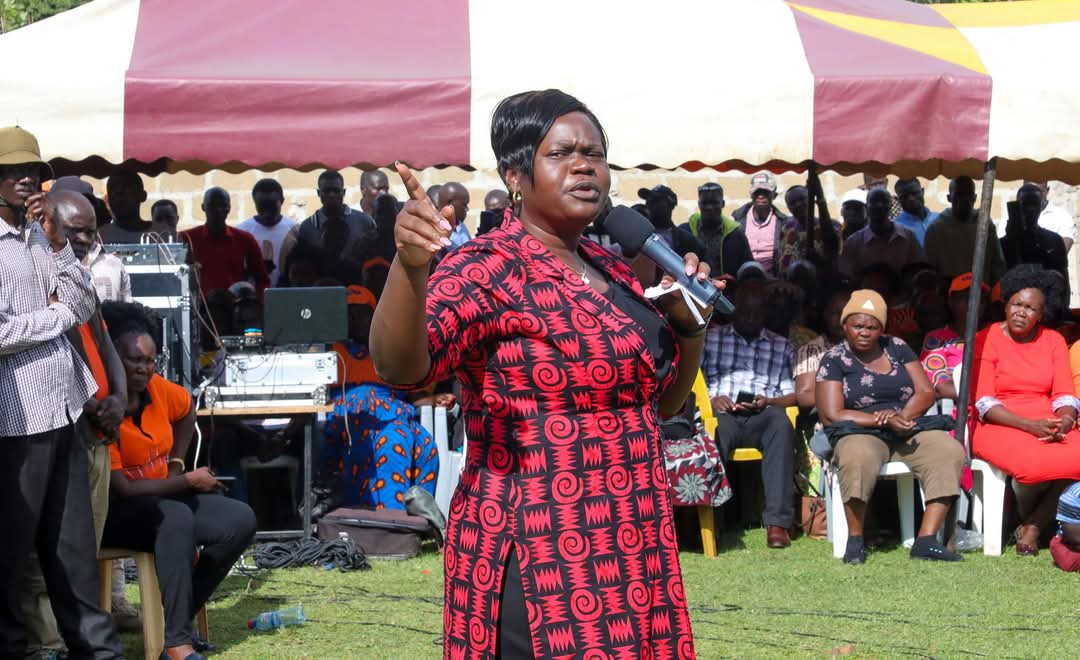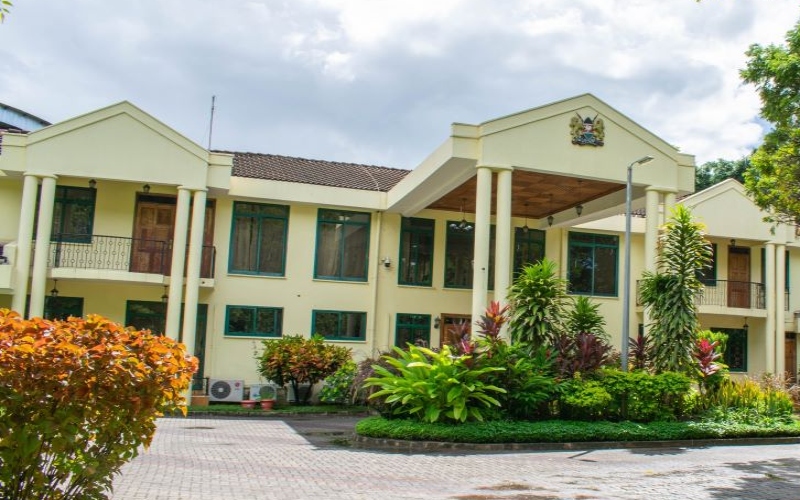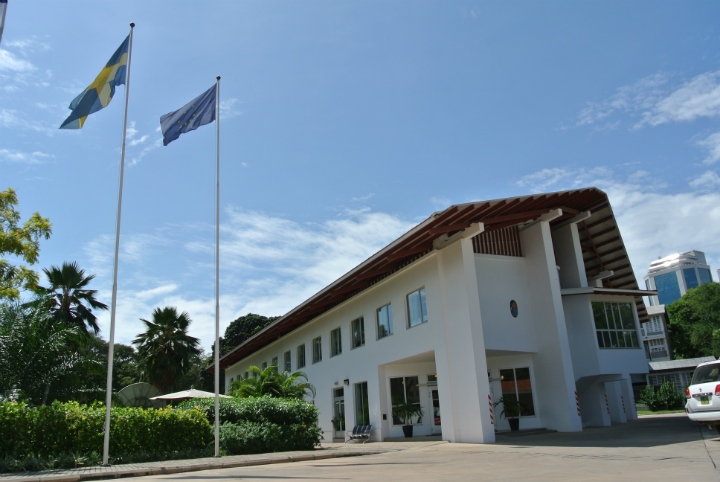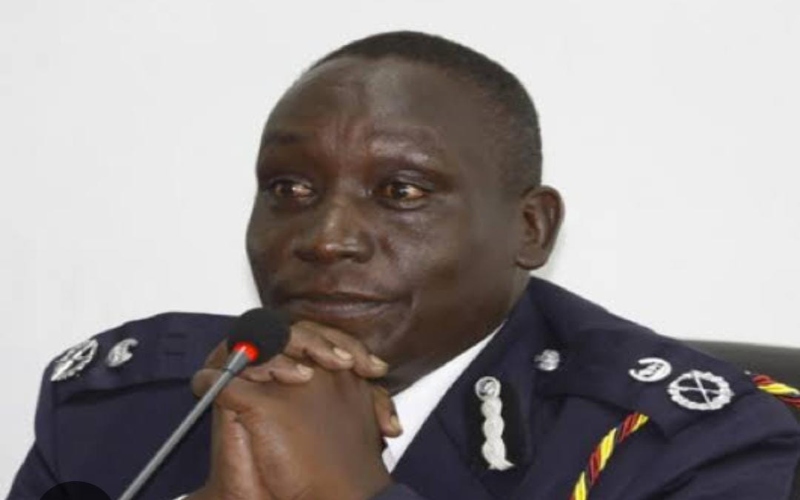Worry, criticism as Ruto plans to raise tax rate to 22 per cent by end of term
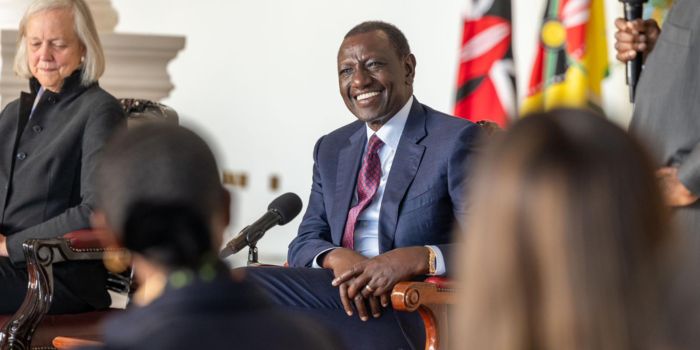
President William Ruto intends to raise the country's average tax rate from 14 per cent to 16 per cent by the end of 2024, and to 20–22 per cent by the end of his term.
Kenyans have pleaded with the government not to increase taxes following an announcement by President William Ruto to raise the country's average tax rate from 14 per cent to 16 per cent by the end of 2024.
Ruto said on Tuesday that he would increase the rate further by the end of his term, to 20–22 per cent, all to bolster the country's revenue streams and diminish its dependence on borrowing.
More To Read
- Kenya ranked Africa’s most competitive economy in International Institute for Management Development 2025 Index
- Ruto unveils Sh4 trillion development plan to propel Kenya to first-world status
- Construction sector seen as Kenya’s weakest job creator in 2025, CBK survey shows
- Majority of Kenyans report worsening economic conditions since last election
- Kenya’s banking sector at a crossroads: Economist analyses new capital rules and licensing shift
- Millions of Kenyans facing financial hardship as cost of living outpaces wages – report
“When I came into the office, I told everybody to tighten their belts. I am not going to preside over a bankrupt country. I'm not going to preside over a country in debt distress. We have to cut our spending. And there is no free lunch,” he said during an engagement with students of the Harvard Business School Class of 2025, on Africa’s trade and investment potential, at the State House in Nairobi.
 Students of the Harvard Business School Class of 2025, are pictured at the State House in Nairobi on May 14, 2024, during an engagement with President William Ruto and United States Ambassador to Kenya Meg Whitman, on Africa’s trade and investment potential. (Photo: PCS)
Students of the Harvard Business School Class of 2025, are pictured at the State House in Nairobi on May 14, 2024, during an engagement with President William Ruto and United States Ambassador to Kenya Meg Whitman, on Africa’s trade and investment potential. (Photo: PCS)
Ruto once again dismissed the perception that Kenya pays more in taxes than other countries in the region, adding that the push to increase revenue through taxes was part of ensuring that “we live within our means.”
"Kenyans have been socialised to believe they pay the highest taxes, but empirical data shows that as of last year, our tax as a percentage of our revenues was 14 per cent. Our peers on the continent have an average of between 22 and 25 per cent, which means our taxes are way below theirs," he said.
“And I'm not comparing us to ECD countries. Countries like France are at 45 per cent; others are higher, so I persuaded and made a case to the people of Kenya that we must begin to enhance our revenue because if we are a serious state, we must be able to enhance our taxes.”
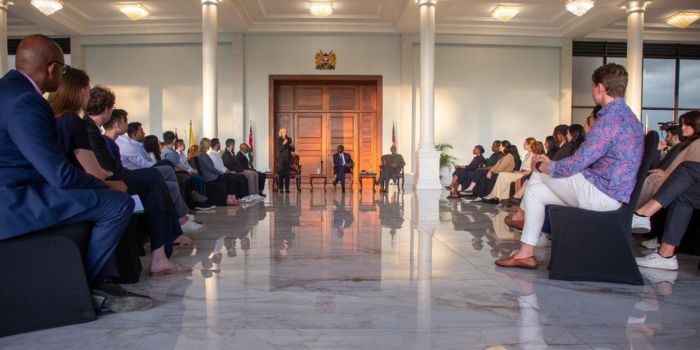 United States Ambassador to Kenya Meg Whitman speaks during an engagement at the State House in Nairobi on May 14, 2024, with students of the Harvard Business School Class of 2025, on Africa’s trade and investment potential. (Photo: PCS)
United States Ambassador to Kenya Meg Whitman speaks during an engagement at the State House in Nairobi on May 14, 2024, with students of the Harvard Business School Class of 2025, on Africa’s trade and investment potential. (Photo: PCS)
In reactions via social media, however, some members of the public rejected the proposal, arguing it would worsen the hardships of a people already burdened by high taxes.
Abdul Ramadan, a shoe shiner on Waudo Street in Eastleigh, Nairobi, decried a disproportionate burden in the informal sector, citing his financial struggles in supporting his family.
"That is increasing the pain for people in the Jua Kali sector. If the current tax rate is a burden to us, how will increasing it be beneficial? Have any of the other taxes he has added so far resulted in any positive impact? Where do all these increased taxes go?”
Several other Kenyans echoed Abdul's sentiments, saying additional taxes only deepen the regular citizen's economic woes without yielding any tangible benefits.
“Imposing taxes isn't bad, but what impact are they having on us as Kenyans? I haven't seen any benefits from the current taxes. I'm still struggling to support my children, especially now that they're back in school; they require school fees, and we've recently faced the challenges of floods, which have severely affected us," said Fatma, another resident of Eastleigh who runs a salon in the area.
"Additionally, many young people are unemployed. Where is all the money collected going?”
 Students of the Harvard Business School Class of 2025, are pictured at the State House in Nairobi on May 14, 2024, during an engagement with President William Ruto and United States Ambassador to Kenya Meg Whitman, on Africa’s trade and investment potential. (Photo: PCS)
Students of the Harvard Business School Class of 2025, are pictured at the State House in Nairobi on May 14, 2024, during an engagement with President William Ruto and United States Ambassador to Kenya Meg Whitman, on Africa’s trade and investment potential. (Photo: PCS)
Others asked Ruto to review his plans and accommodate Kenyans' struggles.
“Let the government show mercy because these taxes might deplete us. Let the president impose taxes on non-essential items like alcohol and drugs, not on food. Food is a basic necessity," said Kennedy Mutuma, a boda boda rider.
"Also, let him reduce fuel prices to around Sh150 or Sh130 a litre. If fuel prices decrease, everything else will become more affordable."
Some Kenyans who shared their views on the X social media platform said they would not mind paying higher taxes if the government were effective in service delivery.
A user identified only as Mbiyu asked what Kenyans would get in return for paying 22 per cent in taxes.
Will it be "a broken public education system, a dysfunctional public health system, more corruption scandals, and more apartments built by corrupt politicians and civil servants", he asked, highlighting the major issues that have plagued the country in recent weeks.
Among them were a doctors' strike that lasted 56 days, the fake fertiliser scandal, and delays in reopening schools due to flooding and displacement following the heavy rains, the latter being an issue that raised complaints about the government's recurrent lack of preparedness to deal with natural disasters.
"Ours is not a revenue problem. It’s a problem of theft and wastage of taxes," Mbiyu wrote.
One Dan Chepta shared the same sentiments, saying, "There is no objection to paying taxes. However, there are concerns about the accountability of the collected taxes. We will end up paying high taxes, but our roads, hospitals, and schools will remain in poor condition."
Danny Gonah expressed mistrust for President Ruto and his Kenya Kwanza government:
It will only make sense the time we see things working but on the other hand he is doing nothing about fake fertilizers and the other scandals. Our money is not in safe hands
— Emmanuel Gona (@Danny_Gonah) May 15, 2024
George Banks criticised Ruto, saying he does not live within his means, yet that is his advice to the public.
"If Ruto’s government cannot live within its means, how are Kenyans supposed to believe his populist rhetoric? People aren’t complaining about taxes. People are complaining about the theft of those taxes, the loot, the wastages, and the impunity. That’s what Kenyans are complaining about."
Top Stories Today
